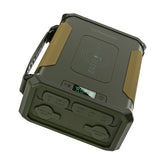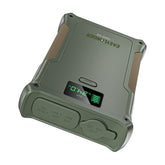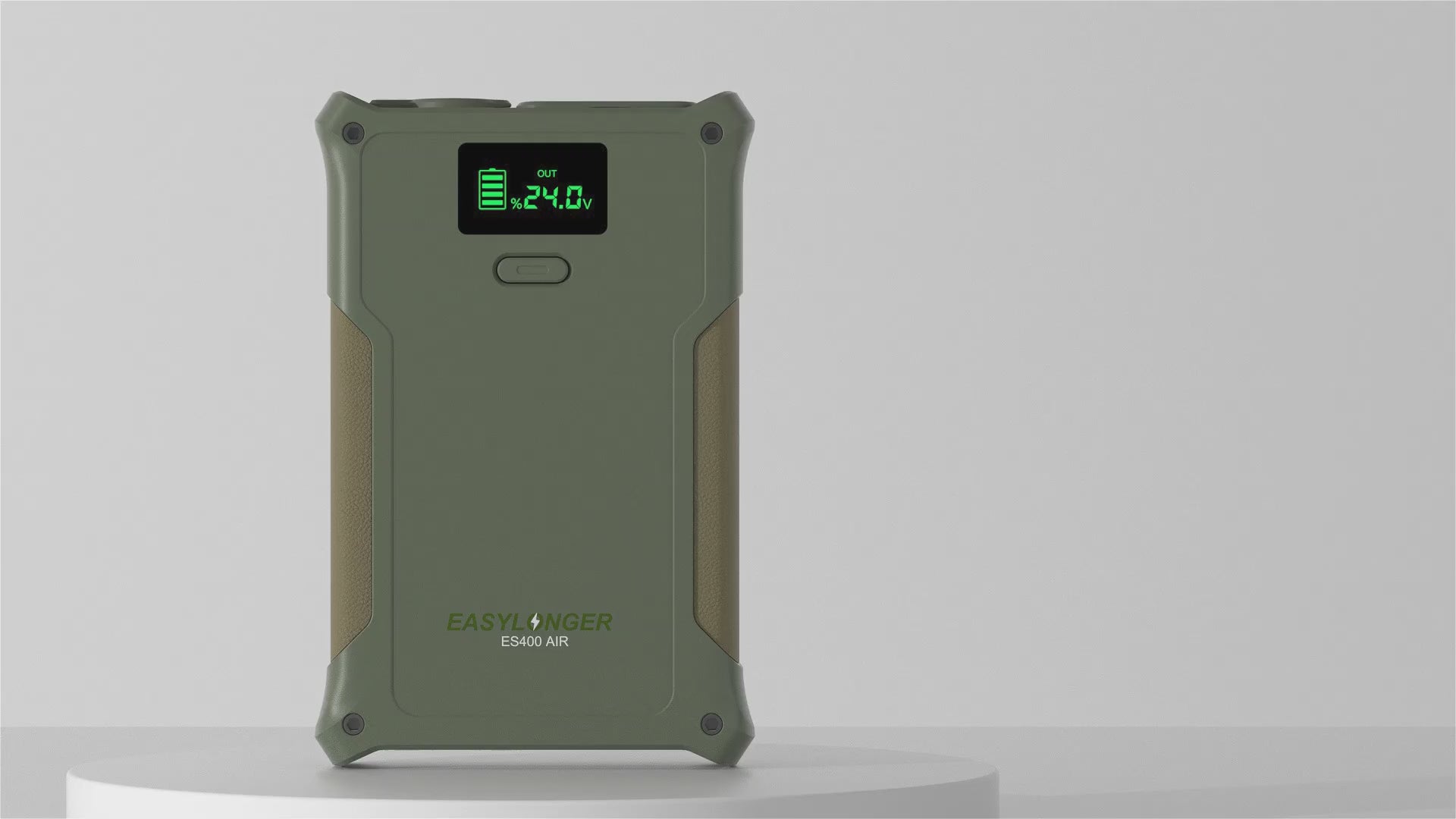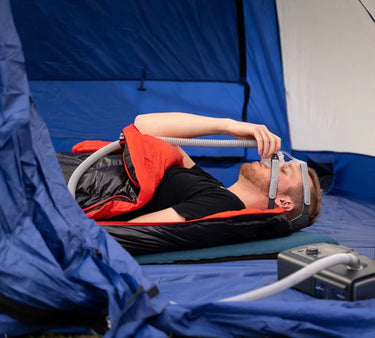Why You Need a CPAP Battery for Air Travel
You might assume that since you can bring your CPAP machine on a plane, you’ll also have a place to plug it in. But according to the U.S. Department of Transportation, most airlines do not guarantee access to electrical outlets, and medical device users should bring sufficient battery power for 150% of the flight time to be safe 1. That means if you’re taking a 6-hour flight, you should have at least 9 hours of battery life for your CPAP machine.
The Federal Aviation Administration (FAA) allows lithium-ion batteries under 160Wh in carry-on baggage 2, which covers most CPAP-specific portable batteries, making them a practical solution for travelers.
CPAP Batteries and Springtime Travel
This time of year brings both joy and unpredictability. Spring storms are common across many U.S. regions, often leading to power outages 3. And if your Easter plans include RV camping or cabin stays, power sources can be limited or nonexistent.
For seniors who may be managing multiple health issues, using a battery operated CPAP machine in off-grid environments is safer and far more comfortable than going without. A portable CPAP battery can also act as a backup during emergencies at home, ensuring you're never without your treatment.
Choosing the Right CPAP Battery: What to Look For
Here’s what to consider when shopping for a CPAP battery for travel:
-
FAA-compliance (under 160Wh)
-
High compatibility with leading CPAP models like ResMed and Philips
-
100Wh+ capacity for overnight use
-
Fast recharging (AC, car, solar)
-
Pass-through charging to avoid battery drainage
-
USB-C and USB-A ports to charge other devices
-
Durable construction with built-in Battery Management System (BMS) for safety
Don't forget to check if the battery is eligible for FSA or HSA reimbursement, which many are 4.
Don’t Let CPAP Limit Your Lifestyle
According to the American Academy of Sleep Medicine, an estimated 30 million Americans have sleep apnea, with only a fraction properly treated 5. And yet, many CPAP users skip trips or avoid flying altogether out of fear they’ll lose sleep—or worse, lose access to therapy.
But with a dependable travel CPAP battery, there's no reason to stay home. Whether it’s Easter brunch in another state or a spring adventure in the woods, you can enjoy life without sacrificing your sleep health.
Our Recommendation This Easter: EASYLONGER ES400 AIR CPAP Battery
If you’re looking for a CPAP battery for camping, flying, or home backup, we highly recommend the EASYLONGER ES400 AIR. It features:
-
FAA-compliant 148Wh capacity—perfect for flying
-
Pass-through charging for no sleep interruptions
-
Four CPAP cables included: works with ResMed S9, AirSense 10, AirCurve 10, AirSense 11, AirMini, and Philips DreamStation/DreamStation 2
-
Three recharge options: AC, car, or solar (solar panel not included)
-
USB-C, USB-A, and 160W car socket for other devices
-
Built-in safety protections with Battery Management System
Whether you’re heading out for Easter vacation or just want the reassurance of backup power, the ES400 AIR is a compact, powerful, and smart choice for anyone who depends on CPAP therapy.
References
Would you like this turned into a graphic blog post layout for your Shopify site? Or would you like a social media caption to promote it?
Footnotes
-
U.S. Department of Transportation. “Battery-Powered Mobility Devices.” https://www.transportation.gov ↩
-
Federal Aviation Administration. “Pack Safe: Batteries.” https://www.faa.gov/hazmat/packsafe ↩
-
U.S. Energy Information Administration. “Power Outages in the United States.” https://www.eia.gov ↩
-
IRS Publication 502: “Medical and Dental Expenses.” https://www.irs.gov ↩
-
American Academy of Sleep Medicine. “Sleep Apnea.” https://aasm.org ↩















